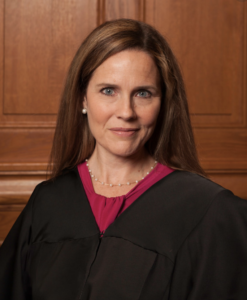 FRANCIS BOYLE, fboyle@illinois.edu
FRANCIS BOYLE, fboyle@illinois.edu
Boyle is a law professor at the University of Illinois. He said today: “Barrett promises to be Scalia on steroids. She has criticized his ‘faint-hearted’ version of ‘originalism.’
“Scalia himself was the first proponent of ‘originalism’ on the Supreme Court. He got it from Robert Bork and Ed Meese, who controlled judicial nominations during the Reagan administration. It was their litmus test for all judicial appointments and nominations.
“But ‘originalism’ is a farce. Justice [Robert H.]Jackson’s landmark opinion in the Steel Seizure case in 1952 actually debunked it decades earlier.” Jackson wrote: “Just what our forefathers did envision, or would have envisioned had they foreseen modern conditions, must be divined from materials almost as enigmatic as the dreams Joseph was called upon to interpret for Pharaoh. A century and a half of partisan debate and scholarly speculation yields no net result but only supplies more or less apt quotations from respected sources on each side of any question. They largely cancel each other.”
This largely overlooked point was made by Anthony Lewis in 1988 while he was a leading author and The New York Times columnist specializing in legal affairs. See his book review: “Like Interpreting the Dreams of Pharaoh.”
Lewis also noted that Bork began “originalism” in a “law review article that stated conclusions without any detailed historical research. He restated his position many times, making a large political mark, but he never did any real scholarship on what the Framers intended — or whether, indeed, they wanted their intentions to be our guide.” Lewis also wrote that many of those who argue for “originalism” also argue against the clear words of the Constitution when it is convenient for them to do so, for example regarding war powers.
Boyle added: “At the same time, many of the Democrats are obviously not serious about trying to stop this nomination. It’s Kabuki theater to them. It’s part of a long pattern: The Republicans in recent decades have packed the courts with Federalist Society ideologues and the Democrats have let it happen, nominated moderates and in this case didn’t take concrete steps they could have to stop the nomination. The only exception to this was the nomination of Bork himself which was stopped by mass public revulsion and protest.”